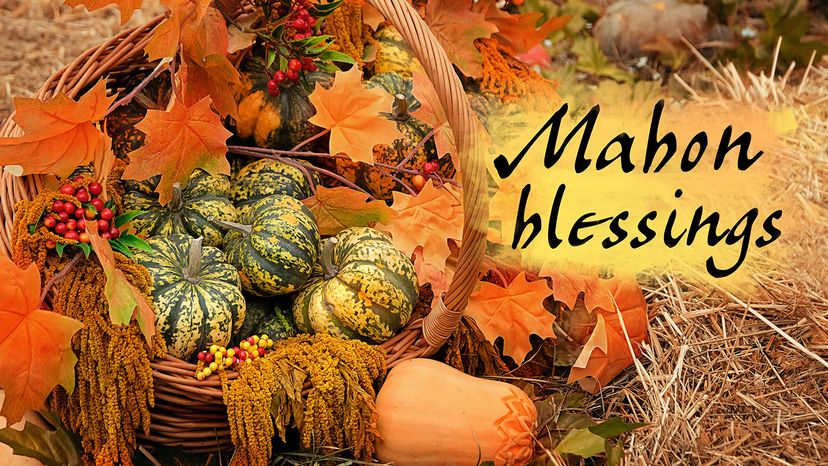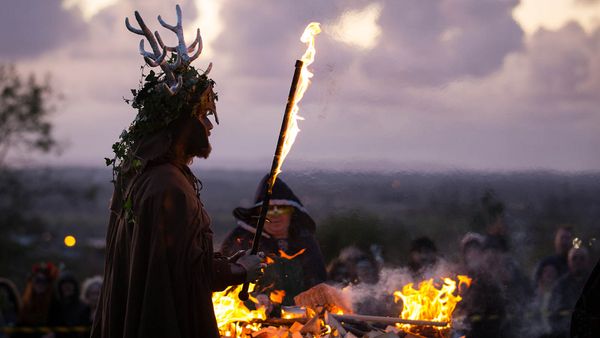On the Pagan calendar, Mabon is the second harvest festival (there are three in all). The first harvest, Lughnasadh, takes place in early August. Mabon celebrates the bounty of late September, and Samhain marks the final harvest of late October.
As farmers and gardeners in the Northern Hemisphere know, late September is the height of the harvest season when everything in the field is ripe and ready to pick: corn, squash, tomatoes, peppers, potatoes, apples, pears and grapes.
1. Recognizing the Harvest With the Cornucopia
One of Fox's favorite Mabon traditions is to fill a cornucopia with the bounty of the season. "The Horn of Plenty, which is such an iconic fall decoration, has its roots among the ancient Greeks," Fox says.
The cornucopia could be the centerpiece for a potluck Mabon picnic, where your guests bring a homemade dish featuring the fruits of the fall. If you want to make it more of a Pagan Thanksgiving, ask everyone to reflect on the past year and share something they're thankful for.
2. Reflect on Balance
You can also set aside time to meditate on the idea of "balance," Fox says, since the fall equinox is when the light and dark are in balance.
"Whether you're Pagan or not," he continues, "this time of year can be a really good opportunity to take a look at what kind of balance to bring to our personal lives. Are we working too much? Are we procrastinating too much and not accomplishing enough? There's an opportunity at Mabon to evaluate and reset."
3. Embrace an Autumnal Nature
Probably the simplest way to celebrate is by bringing the colors of fall into the home with a Mabon altar. Place a basket of fresh red and yellow apples. Fashion a fall wreath out of autumn leaves and dried flowers.
Or better yet, says Fox, go out into nature itself.
Take an early evening walk in the brisk fall air. Get lost in a corn maze. Or on a clear night, soak in the glow of the Harvest Moon, the last full moon before the fall equinox. "Before electricity, it was really helpful to have that extra illumination when you were bringing in the crops."




